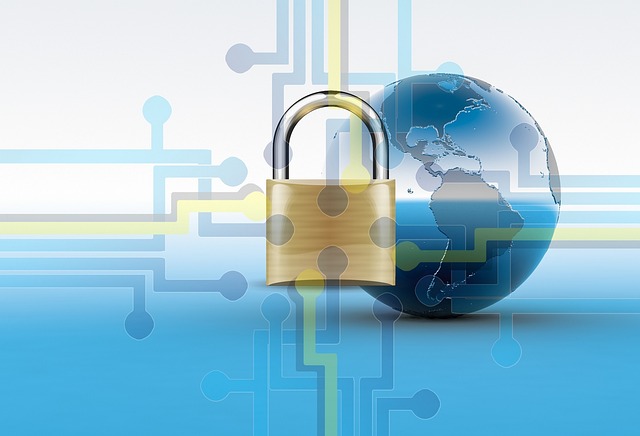
October 10th, 2024
Securing websites with SSL certificates is no longer optional, it's essential. Whether you're running a personal blog or managing an e-commerce platform, SSL (Secure Sockets Layer) ensures that data transmitted between the user's browser and your web server is encrypted. This helps protect sensitive information like login credentials, personal data, and payment details.
However, one question that often arises is whether you should opt for a free SSL certificate or spend a little on a paid SSL certificate, which usually costs around $12 to $15 per year. Free certificates are readily available and easy to install, but are they truly the best option in the long run? Let's explore.
What Do SSL Certificates Do?
At its core, an SSL certificate encrypts the data transferred between your site and your visitors. This encryption prevents hackers or malicious actors from intercepting the data in transit. A website with an SSL certificate is easy to spot, as it will display "HTTPS" in the URL bar, often accompanied by a padlock symbol.
Without SSL, visitors may be greeted with a "Not Secure" warning in their browser, which can deter them from visiting your site, especially if you're handling any kind of sensitive information like credit card details.
Free SSL Certificates: The Basics
Free SSL certificates, like those from Let's Encrypt, have gained popularity because they are:
- Cost-effective: As the name suggests, they are free of charge.
- Widely Supported: They work just like paid SSLs, encrypting data and showing the HTTPS padlock in the address bar.
- Simple Installation: Most hosting platforms offer one-click installs for Let's Encrypt certificates.
So, Why Pay for an SSL Certificate?
Even though free SSL certificates do the job of encrypting data, paid SSL certificates offer certain advantages that could be worth the $12 to $15 per year:
-
Validation Levels:
- Free SSLs typically provide Domain Validation (DV), which confirms only that you own the domain.
- Paid SSLs can offer Organization Validation (OV) or Extended Validation (EV), which go further by verifying the legitimacy of the business. The green bar in EV certificates can give users additional confidence that they are interacting with a legitimate entity.
-
Support:
- With free SSL certificates, you're mostly on your own if something goes wrong.
- Paid SSL providers offer support and warranties, which can be crucial if there's an issue or if you need help setting things up correctly.
-
Warranties:
- Paid certificates often come with warranties that cover any financial loss due to a security breach related to their encryption. Free SSLs typically don’t come with this level of assurance.
-
Trust Factor:
- While a free SSL provides the padlock and encryption, more sophisticated users (or businesses) may prefer a paid certificate, especially when dealing with high-value transactions, as paid certificates can reinforce trust with more rigorous validation methods.
-
Longevity:
- Free SSL certificates typically last for 90 days, requiring frequent renewal. If this is not managed properly, your certificate could expire, leaving your site exposed. Paid certificates can last for one or even two years, providing peace of mind.
When a Free SSL Might Be Enough
For smaller websites, personal blogs, or small projects that don't handle sensitive data, a free SSL certificate might be more than enough. If you're just getting started or if you run a simple content-based website, Let's Encrypt and other free SSL providers will work just fine to secure your site and meet Google’s HTTPS requirements.
When You Should Consider Paid SSL
For businesses, e-commerce sites, or websites handling sensitive information, the small annual cost of a paid SSL certificate could be a smart investment. The added security, validation options, and support give both website owners and users additional peace of mind. It also helps prevent the hassle of frequent renewals, which can save you time and potential downtime if forgotten.
Conclusion: Is $12-$15 Per Year Worth It?
In the grand scheme of things, the price difference between free and paid SSL certificates is minimal. Free certificates are an excellent option for those just starting out or running smaller projects, but for businesses or e-commerce platforms handling sensitive data, a paid SSL certificate provides extra layers of protection, trust, and convenience that are well worth the small investment.
Ultimately, the decision comes down to the size and purpose of your website, but for just $12-15 a year, a paid SSL certificate offers greater assurance, especially for professional and commercial purposes.
Secure Your Website Today with Sectorlink's SSL Certificates
Don't compromise on your website's security! Whether you run a personal blog or a bustling e-commerce site, Sectorlink’s SSL certificates offer the perfect solution for ensuring your visitors' data is safe and secure. With options for Domain Validation (DV), Organization Validation (OV), and Extended Validation (EV) certificates, you can choose the level of protection that fits your needs—all with the added confidence of 24/7 support and robust warranties.
For just a few dollars a year, you'll protect your business and build trust with your customers. Plus, say goodbye to the hassle of frequent renewals with our long-term certificate options!
Ready to Secure Your Website?
Click below to explore our SSL options and get started today!
